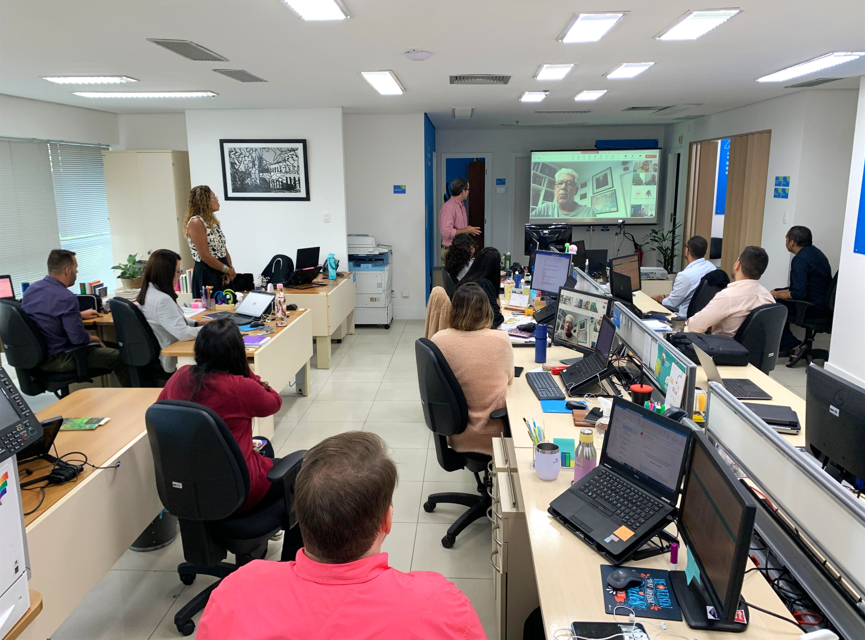Contributing to expanding access to the Our Culture collection, the Norberto Odebrecht Foundation (FNO) has just launched the digital...
Foundation begins Systematization of Our Culture applied to PDCIS
DATE: 05/14/2024
With the aspiration of perpetuating practices, principles and processes integrated into its operations, the Norberto Odebrecht Foundation launched its newest Systematization project on Monday (13).
In 2020, in order to make its sustainable territorial development model available to make a positive contribution in contexts of inequality, the institution systematized the social technology of PDCIS, its social program, based on the experience gained in the years of implementation in the Southern Bahia Lowlands, giving rise to the publication “How to implement PDCIS”.
After identifying the importance and need to systematize the teaching and learning processes of Our Culture in PDCIS, the Foundation set itself the challenge for this year of creating a new publication that identifies how this philosophy of life is incorporated by the beneficiaries of the program.

The project will highlight the influence of the Novonor Group’s culture for beneficiaries of the FNO’s social program
Our Culture was created based on values and beliefs from the Odebrecht Entrepreneurial Technology (TEO), a philosophy based on education and work and materialized in books written by Norberto Odebrecht. Going beyond corporate barriers, it acts as a reference for the members of the Novonor Group, guiding actions and valuing the willingness to serve, individual capacity and the desire for constant evolution.
At the kickoff of the Systematization of Our Culture project, held with the members of the FNO at the office in Salvador (BA), the directors of the Family Houses of the Southern Bahia Lowlands, partner institutions in the implementation of the PDCIS, and Marcio Polidoro, a former member of the Novonor Group for 34 years, 15 of which as communications director, and a consultant for the project, were present remotely. “Our Culture is an intangible asset that represents the most valuable part of our history as a business group and educational entity, which is the case with the Foundation. When we talk about systematizing the references of this culture within the PDCIS, we are enabling it to be multiplied,” says Marcio.
The Systematization of Our Culture in the PDCIS shall be based on research and bibliographical reviews, as well as several interviews. The final publication, which shall present conceptual and programmatic components, shall enable companies, the third sector and educational institutions to implement practices and processes based on this organizational culture in their own way.
For Jonas Nogueira, coordinator of the Foundation’s Sustainability area, who shall lead the project, the richness of this work shall be the appreciation of a culture that has transformed the lives of generations of farmers. “Our Culture is alive and being practiced by every PDCIS beneficiary. This can be seen in their speeches, their worldview and the commitment that each one establishes with their community and their own territory,” he concludes.



No comments